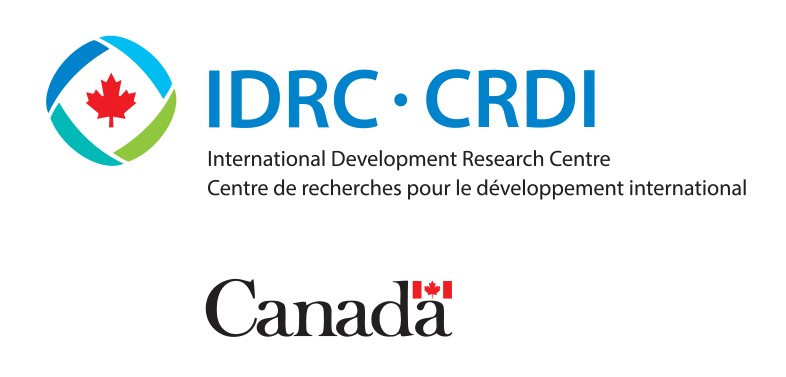Governing Responsible AI and Data for Development Healthcare iteration MENA’s ascendance into AI and health Innovation

Written by: Dr. Abdel Razzak Natsheh
Reading time: 10 minutes
Around the world, artificial intelligence is fundamentally changing a number of industries, including manufacturing, retail, logistics, and telecommunications. By 2030, AI might have a positive economic impact worth up to USD 320 billion in the Middle East [The potential impact of AI in the Middle East]. Read latest economist impact report on recent AI development initiatives in the Middle East’s.
With AI technology developing quickly, there is a lot of potential for it to alter the healthcare industry; from process automation to enhanced diagnostics, quicker medication discovery, and bettering online consultation & medical education.
The governments in the Middle East are likewise attempting to overhaul their healthcare sectors by implementing the usage of Artificial Intelligence, Machine Learning, and Big Data.
The COVID-19 pandemic has catalyzed the use of artificial intelligence (AI) to reshape and advance the healthcare sector. The adoption and spread of these technologies in the healthcare industry have significantly increased in the past year, despite the fact that AI and Big Data have been the focus of numerous discussions over the past few years in the finance, automotive, manufacturing, and research and development domains among many others.
Patients are now being diagnosed by AI-driven algorithms more quickly, more accurately, and even before they arrive at the emergency room. The global telemedicine market is anticipated to reach US$185.6 billion by 2026, with a CAGR of 10.8% during the following five years in the MENA. This trend is following its anticipated reach and likely to exceed it.
As computers that can monitor cases, analyze data, and immediately provide basic care are reshaping the role of frontline care professionals, the question is now how much existing technologies will be replaced or enhanced by AI-aided systems. Governments in the MENA area undoubtedly understand the crucial role that AI-driven systems play in fostering long-term growth and value creation across a variety of vital industries, including healthcare. Technology disparities, electronic health record systems, training and adaptation, data storage and ownership, among other issues, need to be
resolved in order to fully benefit from big data, AI, data science, and predictive algorithms.
On that note, IDRC is funding applied research across a variety of domains such as healthcare to advance the public good through the use of artificial intelligence for development. Furthermore, taking into account the opportunities and potential consequences of new automation and mechanization techniques, advanced analysis through machine learning, and neural networks (AI4D).
These initiatives seek to;
- Foster inclusive and human rights-based AI, better policies and regulations are needed.
In order to mitigate the possible negative effects of AI, such as job losses, while ensuring that AI systems offer innovation and impact, responsive institutions and effective governance are essential.
- Encourage AI applications for the general population.
Research and innovation networks will promote cross-disciplinary and collaborative environments for specialists to create context-specific AI solutions across a variety of industries.
- Develop AI capabilities and infrastructure in the MENA Region.
Building blocks for the successful adoption of AI must be supported, including the release of data from the public and private sectors, capacity building, and support for moral and just systems that serve the common good.
The new initiative will be seen as a pillar in advancing artificial intelligence use in creating high-priority underdeveloped domains in the MENA region.
This project will expand and maintain ongoing initiatives carried out in the MENA area, including: [Read how AI4D will enhance and improve capacity of infrastructure and skills in MENA healthcare sector ]
- Both The population risk management analytics platform by The Department of Health – Abu Dhabi and the AI Data Lab by American Hospital in Dubai offer tested predictive model outcomes for better patient care and a decrease in chronic diseases.
- The $1 million UAE AI and Robotics Award for Good by the Dubai Future Foundation encourages applicants, from all around the world, to submit their cutting-edge applications of AI in healthcare [Ref].
- To improve hospital operational reaction times and patient care, Saudi Arabia has also created a highly integrated COVID-19 digital support system using AI and ML at the King Faisal Specialist Hospital & Research Center (KFSH&RC) [Ref].
- On a local and regional level, governments and regulators need to examine their data standards carefully and improve data quality. Both developing subject-matter expertise and experience, as well as, data ownership and security are important factors to take into account.
Some of the main advantages of widespread adoption of predictive algorithms in healthcare are improved patient flow, patient monitoring and operational efficiencies, improved diagnosis and treatment, and decreased patient morbidity and mortality. As communicators, it is our duty to influence public policy making so that AI-driven medical systems are given high priority by regional governments. The benefits to patients in terms of emotional, physical, and financial well-being –and therefore on regional economies — are enormous.
TELEMEDICINE: CHALLENGES NOW AND GOING FORWARD
In the MENA region prior to COVID-19, patients had access to their physician via phone or chat. However, given the changing dynamics of tele-consultation, the economics of it and what patients are prepared to spend versus a walk-in consultation covered by insurance faces the same dynamic. Patients are not willing to pay for a consultation, which prior to COVID-19 wasn’t a chargeable service but a friendly check-in with the doctor. Regulators would need to create a framework around what comprises tele-consultation and the role insurers would play in this domain.
 Due to cultural differences, patients in the MENA region need to be taught how to feel secure disclosing personal information online, how to be open and honest about the problem, and how to post images that demonstrate the issue. It is the responsibility of healthcare professionals and communicators to convey this as the new standard.
Due to cultural differences, patients in the MENA region need to be taught how to feel secure disclosing personal information online, how to be open and honest about the problem, and how to post images that demonstrate the issue. It is the responsibility of healthcare professionals and communicators to convey this as the new standard.
Analysis of online conversations by APCO Worldwide’s data team conducted as part of the MENA Tech trends report suggests that consumers in the MENA region are undecided on telemedicine. Although four times as many posts about the technology were positive than negative, the vast majority remained neutral. However, social media conversations are focused on health technology aimed at ending the pandemic, not the new normal that is here to stay beyond the COVID-19 pandemic.
After all!
In the field of healthcare, artificial intelligence and machine learning have a bright future. The Middle East has more chances to deploy AI/ML in the healthcare sector because its population is more than prepared, if the necessary training, financial investment, and policy regulation are made. [Read about AI4D Project]
Ultimately, whether you like it or not, a wave of change is unavoidably coming to the Middle Eastern healthcare industry.
The greatest thing one can do is adapt as soon as possible to meet the change head-on!

Written by Dr. Abdel Razzak Natsheh
A hi-tech entrepreneur, founder and product manager of FullSession with over 12 years of experience in the software industry, technical and executive management experience.

